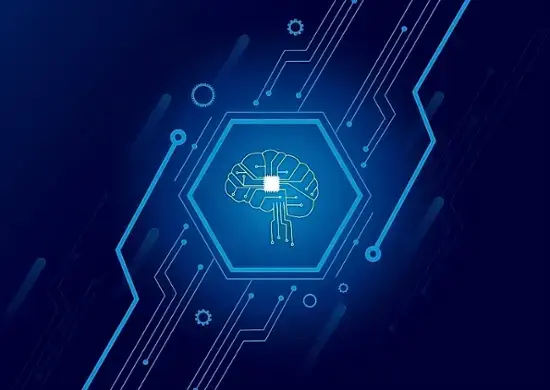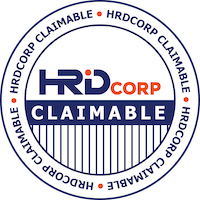Artificial Intelligence – Infrastructure Architect
Master the art of AI infrastructure architecture with our meticulously crafted course. Excel in machine learning model creation using industry-leading tools like TensorFlow and PyTorch. Harness big data technologies such as Hadoop and Spark for efficient data management. Automate complex data pipelines, delve into NoSQL databases like Cassandra, analyze time series with InfluxDB, explore graph databases with Neo4J, and deploy robust ML solutions across various platforms.
- Available in:
- Malaysia

Corporate Pricing
Pax:
Training Provider Pricing
Pax:
Features
Subsidies

What you'll learn
- Automate end-to-end data pipelines leveraging Apache Airflow and NiFi
- Model graph-based data structures using Neo4J
- Design effective NoSQL database schemas with Cassandra
- Deploy machine learning models on-premises or via cloud services
- Understand TensorFlow and PyTorch frameworks for ML applications
- Manage unstructured binary data with HDFS and MapReduce
- Analyze time series data using InfluxDB's querying capabilities
- Utilize SparkSQL for executing SQL commands on large datasets
- Implement Data Lakes using Hadoop and Spark for optimal data storage
Why should you attend?
Dive into the vast and intricate world of Artificial Intelligence infrastructure with a focus on enabling machines to emulate human intelligence. This course encompasses an array of topics, beginning with the core frameworks like TensorFlow and PyTorch that are instrumental in building Machine Learning (ML) and Deep Learning models. Understand how these frameworks apply to real-world applications such as image recognition, natural language processing (NLP), and time series analysis. The curriculum advances to cover SparkSQL, DataFrames, and Datasets, highlighting their importance in handling large-scale data efficiently. It emphasizes the shift from traditional RDDs to more advanced data abstractions for better performance and ease of use. Delving into big data ecosystems, learners will explore Data Lakes using Hadoop and Spark, gaining insights into data wrangling techniques essential for managing voluminous datasets. Automation of data pipelines is another critical component covered in this course, where students learn to orchestrate workflows using tools like Apache Airflow and Apache NiFi while ensuring data quality and lineage tracking. The program also addresses handling unstructured binary data with Hadoop's file system (HDFS) and MapReduce framework, providing a comprehensive understanding of different data types. Learners will also get acquainted with NoSQL databases through Cassandra for structured big data management, InfluxDB for time series data analysis, and Neo4J for graph-based data modeling. Finally, the course culminates with practical deployment strategies for ML models both on-premises and in the cloud along with versioning and logging practices. Real-world case studies on stock market predictions, image recognition, anomaly detection, text classification, and captioning offer hands-on experience to solidify learning outcomes.
Course Syllabus
Day 1 - Data Processing Foundations
Short Break
15 minsShort Break
15 minsRecap and Q&A
15 minsLunch
1 hourShort Break
15 minsShort Break
15 minsShort Break
15 minsRecap and Q&A
15 minsEnd of Day 1
Day 2 - Database Systems & Deployment
Short Break
15 minsShort Break
15 minsRecap and Q&A
15 minsLunch
1 hourShort Break
15 minsShort Break
15 minsShort Break
15 minsRecap and Q&A
15 minsEnd of Day 2
Ratings and Reviews
Instructor
Tarun Sukhani is a distinguished professional trainer and consultant with over 25 years of comprehensive industry experience spanning multinational corporations across the US, Europe, Asia, South America, and the Middle East. His extensive background encompasses senior executive roles including CIO/CTO, director, and board member positions at renowned organizations such as Dell, AMD, and Experian, as well as regional conglomerates like Indra in Asia Pacific. This diverse corporate experience provides him with unique insights into enterprise-level challenges and solutions across multiple business functions including HR, Finance, Operations, Sales, Risk Management, Engineering, and Accounting. As a highly sought-after trainer, Tarun specializes in an impressive array of cutting-edge technologies and methodologies. His expertise spans Agile/Scrum/SAFe frameworks, enterprise architecture (TOGAF/COBIT/ITIL), cybersecurity (CISSP/CEH/CISO), project management (PRINCE2/PMP), Big Data technologies (Hadoop/Spark), Data Science with Python and R, DevOps practices, Machine Learning/AI, cloud computing, blockchain technologies, and modern development frameworks. This comprehensive skill set enables him to deliver training across the entire technology spectrum, from foundational concepts to advanced implementations. His training delivery extends throughout the Asia Pacific region, including Malaysia, Indonesia, Philippines, Thailand, and Singapore, where he has successfully conducted workshops and training programs for both large enterprises and SMEs. Tarun's client portfolio includes industry leaders such as Dell, AMD, Western Digital, Singtel, CIMB, Digi, Tenaga Nasional, and Sime Darby, demonstrating his ability to work with diverse organizational cultures and technical requirements. Academically, Tarun holds exceptional credentials including an MSc in Information Systems and MBA in Finance and Operations Management from Loyola University Chicago, where he graduated summa cum laude with Beta Gamma Sigma and Alpha Sigma Nu honors. His educational foundation is further strengthened by Bachelor's degrees in Biology, Math, Computer Science, and Business Administration, plus advanced programs from MIT and Stanford in AI, Blockchain, and Entrepreneurship. His extensive certifications as an Agile/Scrum trainer, Java/.NET developer, Machine Learning specialist, and InfoSec expert validate his technical proficiency and commitment to continuous learning, making him an ideal trainer for organizations seeking comprehensive technology education and transformation guidance.'
Minimum Qualification
Target Audience
Methodologies
Instructor Reviews
He was indeed very skilled, knowledgeable and passionate in the data science realm. I was impressed with his business know-how (how the world economy works and how all things can be explain with data, with/without bias) and technical skills in converting data into insights. I will not hesitate to recommend Tarun for any data science related training as I would like to attend more classes myself to learn from the best of the best.
I attended one of Tarun's Data Science course in Jakarta (CDSS). He was a professional trainer & very knowledgeable in Data Science. In his course, Tarun gave many practical examples & valuable information regarding how to conduct Data Science & it's related components (e.g. Software & Deployment Architecture). In addition to those lessons, he also gave very useful insights on building a career as a Data Scientist.
Attended "Blockchain Training: An Overview for Business Professionals" conducted by Dr. Tarun. The reference materials are very comprehensive and an excellent means of conveying information. I was very impressed with how this technology works and adapted into business
He shared his professional insights on data science with a sense of humor that cleared up so many of my questions about the content and real-world applications. Information, tools, and resources given are very useful
His knowledge of multiple subjects exceeds far greater than that of any IT or non-IT person I have met or interacted with in a long time. The breadth and depth of the subject matter he has acquired is exemplary.
Training with Tarun has been awesome. He’s super knowledgable, funny, empathetic and a great educator in general. As someone who didn’t come from a computer science background, his teachings didn’t make me feel stupid or impossible to eventually arrive at being a competent developer. I could understand him as he communicates well & has helped me see the big picture of the computer science field beyond the scope of syntaxes. If you similarly did not come from a CS background and hope to transition into the world of programming but struggle to learn on your own, understand all the foreign & abstract concepts and connect the dots, I think the right person to guide you on your journey would make a big difference. Having someone who’s deep in the field with many years of experience narrow and communicate the relevant areas to focus would also close a big gap from having to struggle and figure out a lot of things on your own. Being able to maintain your interest during your learning journey is important too, thus finding that someone is important. All in all, I would wholeheartedly recommend Tarun and the backend course I took.
Tarun is a results-driven & inspirational technology leader with a clear vision, direction, and broad-based technology expertise. He is passionate, intuitive, engaged, pragmatic, systematic, agile. His experiences span from small start-ups to complex, global companies, from being technical lead to technical strategist to being the leader of larger group of architecture and engineering teams. Much of his experiences are in the area of Java, Scala, Machine Learning, Neural Networks, Cloud Computing, Data Science and what not. I am truly amazed to experience his breadth & depth of technological expertise and pleasure to be part of his team.
Tarun is very passionate on the domains and gave numerous insights to support critical business decisions and develop data products to transform daily encounters and processes. He was a professional trainer & very knowledgeable in Data Science. His material is presented through a sequence of brief lectures, interactive demonstrations, great hands-on exercises, and discussions.
We’ve been collaborated many times in doing courses for the accountants. He spoke to quiet number of event in our company with various topic regards to accountants need. The collaboration was very smooth and his session definitely made a huge impact on our success. Mr Tarun is a great Professional!
Mr. Tarun is a driven, hardworking, and knowledgeable entrepreneur in his field." A broad-minded trainer who embraces change and inspires people to do better every day. Mr. Tarun sets a good example by being enthusiastic and dedicated, and he inspires and motivates others. I am delighted to be working for such personnel
FAQs
- Public pricing: applies for individuals signing up from different companies.
- Corporate pricing: applies if a company wants to have an intake for its employees only.
- Training provider pricing: applies only for other training providers looking to hire our trainers and use our content. Our content has a licensing fee.
Courses you may like
Why should you attend?
Dive into the vast and intricate world of Artificial Intelligence infrastructure with a focus on enabling machines to emulate human intelligence. This course encompasses an array of topics, beginning with the core frameworks like TensorFlow and PyTorch that are instrumental in building Machine Learning (ML) and Deep Learning models. Understand how these frameworks apply to real-world applications such as image recognition, natural language processing (NLP), and time series analysis. The curriculum advances to cover SparkSQL, DataFrames, and Datasets, highlighting their importance in handling large-scale data efficiently. It emphasizes the shift from traditional RDDs to more advanced data abstractions for better performance and ease of use. Delving into big data ecosystems, learners will explore Data Lakes using Hadoop and Spark, gaining insights into data wrangling techniques essential for managing voluminous datasets. Automation of data pipelines is another critical component covered in this course, where students learn to orchestrate workflows using tools like Apache Airflow and Apache NiFi while ensuring data quality and lineage tracking. The program also addresses handling unstructured binary data with Hadoop's file system (HDFS) and MapReduce framework, providing a comprehensive understanding of different data types. Learners will also get acquainted with NoSQL databases through Cassandra for structured big data management, InfluxDB for time series data analysis, and Neo4J for graph-based data modeling. Finally, the course culminates with practical deployment strategies for ML models both on-premises and in the cloud along with versioning and logging practices. Real-world case studies on stock market predictions, image recognition, anomaly detection, text classification, and captioning offer hands-on experience to solidify learning outcomes.
What you'll learn
- Automate end-to-end data pipelines leveraging Apache Airflow and NiFi
- Model graph-based data structures using Neo4J
- Design effective NoSQL database schemas with Cassandra
- Deploy machine learning models on-premises or via cloud services
- Understand TensorFlow and PyTorch frameworks for ML applications
- Manage unstructured binary data with HDFS and MapReduce
- Analyze time series data using InfluxDB's querying capabilities
- Utilize SparkSQL for executing SQL commands on large datasets
- Implement Data Lakes using Hadoop and Spark for optimal data storage
Course Syllabus
Day 1 - Data Processing Foundations
Short Break
15 minsShort Break
15 minsRecap and Q&A
15 minsLunch
1 hourShort Break
15 minsShort Break
15 minsShort Break
15 minsRecap and Q&A
15 minsEnd of Day 1
Day 2 - Database Systems & Deployment
Short Break
15 minsShort Break
15 minsRecap and Q&A
15 minsLunch
1 hourShort Break
15 minsShort Break
15 minsShort Break
15 minsRecap and Q&A
15 minsEnd of Day 2
Instructor Reviews
He was indeed very skilled, knowledgeable and passionate in the data science realm. I was impressed with his business know-how (how the world economy works and how all things can be explain with data, with/without bias) and technical skills in converting data into insights. I will not hesitate to recommend Tarun for any data science related training as I would like to attend more classes myself to learn from the best of the best.
I attended one of Tarun's Data Science course in Jakarta (CDSS). He was a professional trainer & very knowledgeable in Data Science. In his course, Tarun gave many practical examples & valuable information regarding how to conduct Data Science & it's related components (e.g. Software & Deployment Architecture). In addition to those lessons, he also gave very useful insights on building a career as a Data Scientist.
Attended "Blockchain Training: An Overview for Business Professionals" conducted by Dr. Tarun. The reference materials are very comprehensive and an excellent means of conveying information. I was very impressed with how this technology works and adapted into business
He shared his professional insights on data science with a sense of humor that cleared up so many of my questions about the content and real-world applications. Information, tools, and resources given are very useful
His knowledge of multiple subjects exceeds far greater than that of any IT or non-IT person I have met or interacted with in a long time. The breadth and depth of the subject matter he has acquired is exemplary.
Training with Tarun has been awesome. He’s super knowledgable, funny, empathetic and a great educator in general. As someone who didn’t come from a computer science background, his teachings didn’t make me feel stupid or impossible to eventually arrive at being a competent developer. I could understand him as he communicates well & has helped me see the big picture of the computer science field beyond the scope of syntaxes. If you similarly did not come from a CS background and hope to transition into the world of programming but struggle to learn on your own, understand all the foreign & abstract concepts and connect the dots, I think the right person to guide you on your journey would make a big difference. Having someone who’s deep in the field with many years of experience narrow and communicate the relevant areas to focus would also close a big gap from having to struggle and figure out a lot of things on your own. Being able to maintain your interest during your learning journey is important too, thus finding that someone is important. All in all, I would wholeheartedly recommend Tarun and the backend course I took.
Tarun is a results-driven & inspirational technology leader with a clear vision, direction, and broad-based technology expertise. He is passionate, intuitive, engaged, pragmatic, systematic, agile. His experiences span from small start-ups to complex, global companies, from being technical lead to technical strategist to being the leader of larger group of architecture and engineering teams. Much of his experiences are in the area of Java, Scala, Machine Learning, Neural Networks, Cloud Computing, Data Science and what not. I am truly amazed to experience his breadth & depth of technological expertise and pleasure to be part of his team.
Tarun is very passionate on the domains and gave numerous insights to support critical business decisions and develop data products to transform daily encounters and processes. He was a professional trainer & very knowledgeable in Data Science. His material is presented through a sequence of brief lectures, interactive demonstrations, great hands-on exercises, and discussions.
We’ve been collaborated many times in doing courses for the accountants. He spoke to quiet number of event in our company with various topic regards to accountants need. The collaboration was very smooth and his session definitely made a huge impact on our success. Mr Tarun is a great Professional!
Mr. Tarun is a driven, hardworking, and knowledgeable entrepreneur in his field." A broad-minded trainer who embraces change and inspires people to do better every day. Mr. Tarun sets a good example by being enthusiastic and dedicated, and he inspires and motivates others. I am delighted to be working for such personnel
Corporate Pricing
Pax:
Training Provider Pricing
Pax:
Features
Subsidies

Ratings and Reviews
Instructor
Tarun Sukhani is a distinguished professional trainer and consultant with over 25 years of comprehensive industry experience spanning multinational corporations across the US, Europe, Asia, South America, and the Middle East. His extensive background encompasses senior executive roles including CIO/CTO, director, and board member positions at renowned organizations such as Dell, AMD, and Experian, as well as regional conglomerates like Indra in Asia Pacific. This diverse corporate experience provides him with unique insights into enterprise-level challenges and solutions across multiple business functions including HR, Finance, Operations, Sales, Risk Management, Engineering, and Accounting. As a highly sought-after trainer, Tarun specializes in an impressive array of cutting-edge technologies and methodologies. His expertise spans Agile/Scrum/SAFe frameworks, enterprise architecture (TOGAF/COBIT/ITIL), cybersecurity (CISSP/CEH/CISO), project management (PRINCE2/PMP), Big Data technologies (Hadoop/Spark), Data Science with Python and R, DevOps practices, Machine Learning/AI, cloud computing, blockchain technologies, and modern development frameworks. This comprehensive skill set enables him to deliver training across the entire technology spectrum, from foundational concepts to advanced implementations. His training delivery extends throughout the Asia Pacific region, including Malaysia, Indonesia, Philippines, Thailand, and Singapore, where he has successfully conducted workshops and training programs for both large enterprises and SMEs. Tarun's client portfolio includes industry leaders such as Dell, AMD, Western Digital, Singtel, CIMB, Digi, Tenaga Nasional, and Sime Darby, demonstrating his ability to work with diverse organizational cultures and technical requirements. Academically, Tarun holds exceptional credentials including an MSc in Information Systems and MBA in Finance and Operations Management from Loyola University Chicago, where he graduated summa cum laude with Beta Gamma Sigma and Alpha Sigma Nu honors. His educational foundation is further strengthened by Bachelor's degrees in Biology, Math, Computer Science, and Business Administration, plus advanced programs from MIT and Stanford in AI, Blockchain, and Entrepreneurship. His extensive certifications as an Agile/Scrum trainer, Java/.NET developer, Machine Learning specialist, and InfoSec expert validate his technical proficiency and commitment to continuous learning, making him an ideal trainer for organizations seeking comprehensive technology education and transformation guidance.'
Minimum Qualification
Target Audience
Methodologies
FAQs
- Public pricing: applies for individuals signing up from different companies.
- Corporate pricing: applies if a company wants to have an intake for its employees only.
- Training provider pricing: applies only for other training providers looking to hire our trainers and use our content. Our content has a licensing fee.
Courses you may like
Our Offers

Become a Trainer
Teach what you love. Abundent Academy gives you the tools you need to run your own trainings! We provide you with the platform, the students, the materials, and the support you need to succeed!
- Higher trainer payouts
- Ready-made course materials
- Student management system
- AI digital marketing assistant

Academy for Business
Get unlimited access to all of Abundent Academy's carefully curated courses for your team, all organized according to job category and role! Perfect for companies looking to upskill their workforce and stay ahead in the tech industry.
- Carefully curated courses
- Role-based learning paths
- Team progress tracking
- Gap Identification and Analysis
Top companies choose Academy for Business







